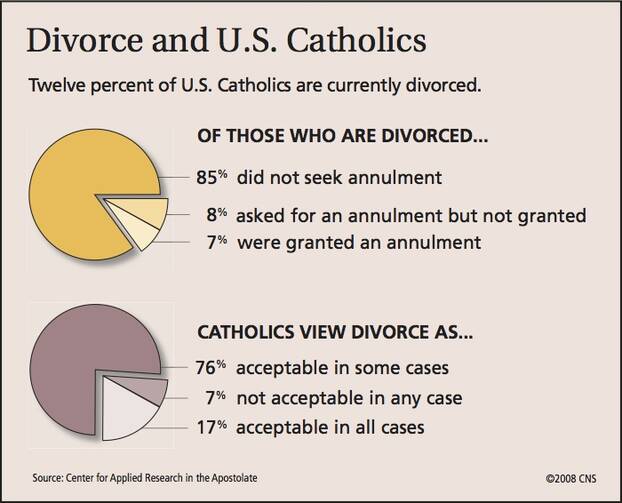Amid rising expectations that the Catholic Church might make it easier for divorced and remarried members to receive Communion, the Vatican's highest doctrinal official reaffirmed church teaching barring such persons from the sacrament without an annulment of their first, sacramental marriage.
But Archbishop Gerhard L. Muller, prefect of the Congregation for the Doctrine of the Faith, acknowledged that many Catholics' first marriages might be invalid, and thus eligible for annulment, if spouses had been influenced by prevailing contemporary conceptions of marriage as a temporary arrangement.
The archbishop's words appeared in a 4,600-word article published in the Vatican newspaper on Oct. 22.
Speculation about a change in practice has grown since Pope Francis told reporters accompanying him on his plane back from Rio de Janeiro in July that the next Synod of Bishops would explore a "somewhat deeper pastoral care of marriage," including the question of the eligibility of divorced and remarried Catholics to receive Communion.
Pope Francis added at the time that church law governing marriage annulments also "has to be reviewed, because ecclesiastical tribunals are not sufficient for this."
Such problems, he said, exemplified a general need for forgiveness in the church today.
"The church is a mother, and she must travel this path of mercy, and find a form of mercy for all," the pope said.
The Vatican announced Oct. 8 that an extraordinary session of the Synod of Bishops will meet Oct. 5-19, 2014, to discuss the "pastoral challenges of the family in the context of evangelization."
The announcement of the synod came amid news that the Archdiocese of Freiburg, Germany, had issued new guidelines making it easier for divorced and remarried Catholics to receive Communion.
Archbishop Muller's article seemed designed to temper the expectations of change that these events have excited.
The archbishop acknowledged that a "case for the admission of remarried divorcees to the sacraments is argued in terms of mercy," but wrote that such an argument "misses the mark" in regard to the sacraments, since the "entire sacramental economy is a work of divine mercy and it cannot simply be swept aside by an appeal to the same.
"An objectively false appeal to mercy also runs the risk of trivializing the image of God, by implying that God cannot do other than forgive," he wrote. "The mystery of God includes not only his mercy but also his holiness and his justice. If one were to suppress these characteristics of God and refuse to take sin seriously, ultimately it would not even be possible to bring God's mercy to man."
The prefect's article also addressed the Eastern Orthodox practice of allowing second or third marriages even when the first is sacramentally valid, a practice Pope Francis mentioned without endorsing when speaking to reporters in July.
"This practice cannot be reconciled with God's will, as expressed unambiguously in Jesus' sayings about the indissolubility of marriage," the archbishop wrote.






